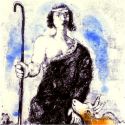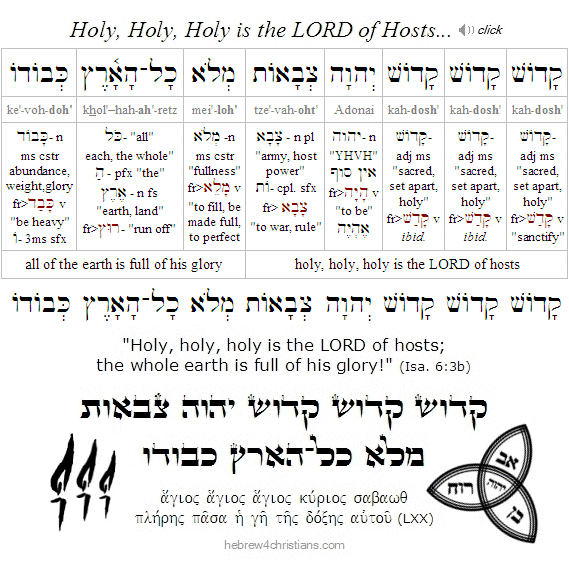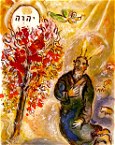|
WE KNOW VERY LITTLE ABOUT Moses' early life in Pharaoh's palace, though it is likely that he believed from an early age that he was destined to lead the Jewish people. After all, his sister Miriam was a prophetess who had foreseen that he would one day be the deliverer of Israel, and his mother Yocheved undoubtedly regarded his miraculous rescue and adoption by the Pharaoh's daughter to portend great things for her son. Indeed, since Yocheved served as Moses' nurse before he was formally adopted by the princess, it is possible that she (and her family) had some sort of relationship with her son even after he became a great "prince of Egypt."
The Torah is also silent about Moses' early years as a prince of Egypt, though we know that he was "educated in all the wisdom of the Egyptians" (Acts 7:22). Directly after mentioning the occasion of his official adoption (and naming) by the princess, the narrative of the Torah jumps ahead to present him as a full-grown man willing to deliver the Israelites (Exod. 2:10-11). Moses is described as "going out to his people and looking on their burdens" during the time of Pharaoh's forced slavery of Israel. When he saw an Egyptian beating an Israelite slave, his moral indignation was so stirred that he rose up and killed the man and hid his body in the sand. If Moses had hoped to became the "rebel leader" of the Israelites at this time, however, his hope was soon dashed. The Torah relates that the following day he "went out again" and sought to reconcile two Israelites who were fighting. The one in the wrong objected: "Who made you a prince and judge (שַׂר וְשׁפֵט) over us? Do you want to kill me as you killed the Egyptian yesterday?" Upon hearing this Moses realized he would not be accepted as Israel's rebel leader and therefore fled to Midian to escape being tried for treason (Exod. 2:13-15).
According to the New Testament, Moses was 40 years old at this time and "had supposed that his brothers would understand that God was giving them salvation by his hand, but they did not understand" (Acts 7:23-25). Apparently Moses believed that he was indeed destined to be a "prince and judge" (שַׂר וְשׁפֵט) over the Israelites, and he may even have envisioned himself to be another "Joseph" whom God providentially raised up to deliver the Jewish people. Whatever he was thinking at the time, however, it is clear that Moses became a "failed Messiah" by trying to effect deliverance by means of his own zeal and design. After all, how could he have begun his career as the deliverer of Israel by means of an act of murder? It would take another 40 years in the wilderness for him to "unlearn" the ways of corrupt Egypt (something the Israelites later would experience for themselves after the Exodus). The way of true spiritual ascent always requires descent - the stripping of the ego and its illusions so that Voice of God can be heard. Moses needed to experience genuine brokenness before he could meet the Angel of the LORD, the true Messiah and Deliverer of Israel.
After Moses dejectedly fled to the land of Midian, he met and married Zipporah, the daughter of a Midianite (i.e., Gentile) priest named Yitro (Exod. 2:16-21). They had a son named Gershom (from ger (גֵּר), "stranger" and sham (שָׁם), "there"), and Moses then spent the next 40 years as a "stranger there" tending his father-in-law's sheep (Acts 7:30). The glory of his former days as a "prince of the world" began to fade. Moses surely began to rethink his assumptions as he listened to the godly counsel of his father-in-law (the Midianites were descendants of Abraham and Keturah and therefore Moses' distant cousins [1 Chron. 1:32]). Over time he undoubtedly began to realize that mere human zeal was insufficient to bring about deliverance, and that something far greater was therefore needed. A midrash says that Moses (like King David after him) eventually realized the importance of God's love and compassion as he worked as a shepherd. While he was tending the flock in the wilderness, a little kid escaped from him. He ran after it until he found it in a shady place, where he saw a pool of water from which the kid had stopped to drink. When Moses approached it, he said: 'I did not know that you ran away because of thirst; you must be weary.' So he placed the kid on his shoulders and carried it back to rejoin the flock. Thereupon God said: "Because you showed compassion while caring for the flock of mortal sheep, you will assuredly tend my flock Israel" (Shemot Rabbah 2:2).

One day, nearly 40 years after he first fled to the wilderness of Midian, Moses led his flock toward Mount Chorev (synonymous with Mount Sinai), where he noticed a strange apparition: a thorn bush was burning but was not consumed by the fire. When Moses turned aside to take a closer look, God suddenly began to speak to him: "Moses, Moses... do not come nearer; take your shoes off your feet, for the place on which you are standing is holy ground" (Exod. 3:4-5).
During this fantastic encounter, God's first words to Moses may seem somewhat disappointing. After all, this was going to be the defining moment of Moses' life - the moment when he would be commissioned to become "God's prince" rather than a mere prince of Egypt. This was the dream of Moses' heart, his lifelong hope... Everything about Moses' life somehow led to this meeting with God, but God's first spoken words were simply: "Do not come nearer... take off your shoes."
God's first words to Moses puzzled the sages and the later commentators. Why didn't God begin, for instance, by introducing himself, as He did in the following verse ("I am the God of your father, the God of Abraham, the God of Isaac, and the God of Jacob")? Why did He begin with the commandments, "Do not come nearer... take off your shoes"?
The Jewish philosopher Maimonides (1135-1204) stated that Moses' first meeting with God was intended to reveal his spiritual development as a prophet. At the beginning of his calling, Moses was commanded not to come near, but later (after the Exodus) Moses was able to "approach the thick darkness where God was" (Exod. 20:18). In other words, Moses' ability to approach the Divine Presence developed over the course of his journey with the Lord, and this episode is intended to reveal the contrast between the early and later Moses...
The medieval mystic Rabbi Bachya ben Asher (c. 1300's) wrote that the removal of Moses' shoes was a symbol of the need to "remove" the earthly aspects of life that impede the gift of prophecy. God's first words to Moses thus represent a call to leave the realm of the physical in order to enter the spiritual realm. In other words, Moses simply could not "come nearer" to God until he first divested himself of the earthly, symbolized by his shoes...
Rabbi Samson Hirsch (1808-1888), on the other hand, stated that the burning bush represented the ineffable attributes of God - that is, God as Ein Sof (the Infinite), since the bush defied human rationality and logical comprehension. God's first words to Moses ("Do not come nearer... take off your shoes") therefore meant that he must accept his place in the world and sanctify the ground upon which he is standing (i.e., malkhut). Encountering the Divine Presence implies reverently "backing away" from the inscrutable as something that surpasses you in every way, and then surrendering yourself to the place where you find yourself in the present moment... "Do not come nearer" therefore means "do not search for me in visions of a burning bush." God's Voice speaks in human language from the midst of the fire so that we can meet Him in our present state of finitude. The commandment to "take off your shoes" therefore means to "accept your limitations and the realm of your existence." The first words spoken to Moses, then, essentially are "let God be God." Sanctify this time and place and understand that God speaks to you....
In many synagogues there is a powerful phrase displayed on the doors of Aron Ha-Kodesh (the holy ark in which are kept the Torah scrolls) that says, "Know before whom you stand" (in Hebrew: דַּע לִפְנֵי מִי אַתָּה עוֹמֵד - da lifnei mi attah omed). This phrase is intended to remind us that we are to have a reverent and focused attitude while we are at services. Note, however, that such a distinction between the sacred and the profane is somewhat artificial, since we are always in the Presence of God (Acts 17:28) and the whole earth is filled with His glory (Isa. 6:3). But taken as a general principle of life, da lifnei mi attah omed enjoins us to be aware that everything we say, think, or do is before the divine audience of the Living God (אֵל־חָי) Himself.
Since the LORD is infinite, the distinctions we make (as finite creatures) in terms of time and space do not apply to Him. God infinitely transcends all of creation and He alone is holy (Isa. 42:8, 28:11). But understand that God's infinite Presence also means He fills the heavens and the earth (Isa. 6:3). The whole earth is lit up with God's Glory, and every bush is aflame before us, if we have eyes to see...
Though God is infinitely above us, He is not "remote" from us, nor are the very angels in heaven any "closer" to Him than you are right now. As the One who Emptied Himself said, "your Heavenly Father knows the number of hairs upon your head" (Matt. 10:30). We can draw close to Him by opening our eyes of faith.
Finally, some of the sages of the Talmud state that God instructed Moses to remove his shoes as an object lesson. Moses' sandals insulated him from the thorns and rocks of the path of life, just as he had been insulated from the suffering of the Hebrews while he lived as a prince of Egypt. God wanted Moses to remember the pains that his people were experiencing back in Egypt while he was speaking with him. He wanted Moses to empathize with the Jewish people and to feel their suffering as if it were his own. As A.W Tozer once wrote, "It is doubtful whether God can bless a man greatly until He's hurt him deeply," and that certainly applies to the case of Moses as the prophet of God.
Postscript
The Exodus is surely one of the most fundamental events of the Jewish people. In addition to being commemorated every year during Passover (Exod. 12:24-27; Num. 9:2-3; Deut. 16:1), it is explicitly mentioned in the first of the Ten Commandments (Exod. 20:2), and it is recalled every Sabbath (Deut. 5:12-15). The festivals of Shavuot and Sukkot likewise derive from it, the former recalling the giving of the Torah at Sinai and the latter recalling God's care as the Exodus generation journeyed from Egypt to the Promised Land... Indeed, nearly every commandment of the Torah (including the laws of the Tabernacle and the sacrificial system) may be traced back to the story of the Exodus. For the follower of Yeshua, the Exodus prefigures and exemplifies the work of redemption given through the Messiah as the Lamb of God.
As important as Moses was to the Exodus story, it is important to remember that only God may be called the Deliverer or Redeemer of Israel. God - not Moses - is rightly the focus of the story of the Exodus (indeed, the traditional text of the Passover haggadah does not even mention Moses' name). When Moses acted in his own strength, he was a "failed Messiah" of sorts. Moses needed to be humbled in the desert before he could learn to recognize the Divine Presence.... It was only after meeting Yeshua - the "Angel of the LORD speaking out of the midst of the fire" - that he was enabled to function as God's servant and mediator.
Hebrew Lesson
Isaiah 6:3b reading (click):
 |
Note: For some more discussion about the rise of Moses as Israel's leader, see the article entitled, "The Advent of Moses."
|





